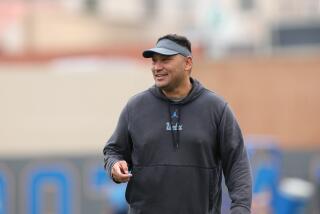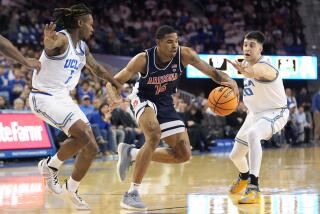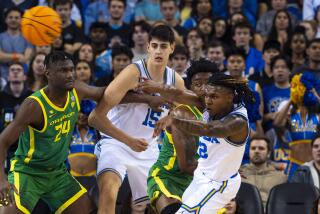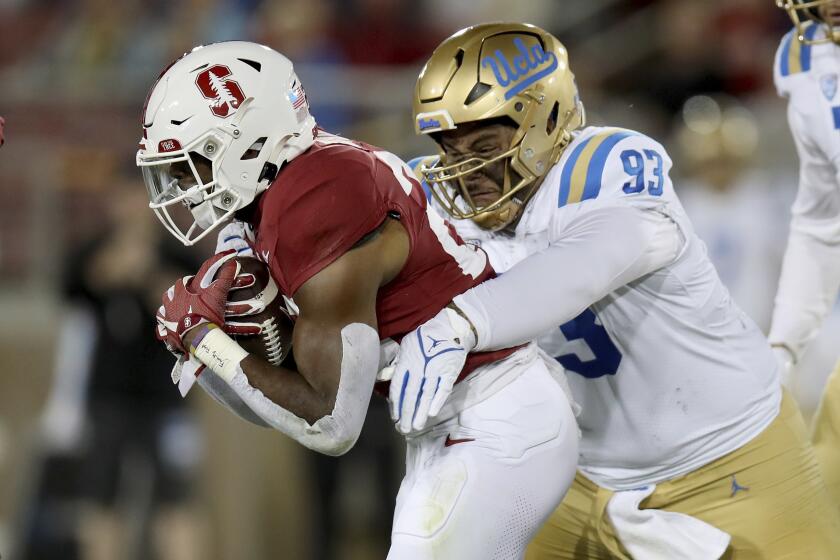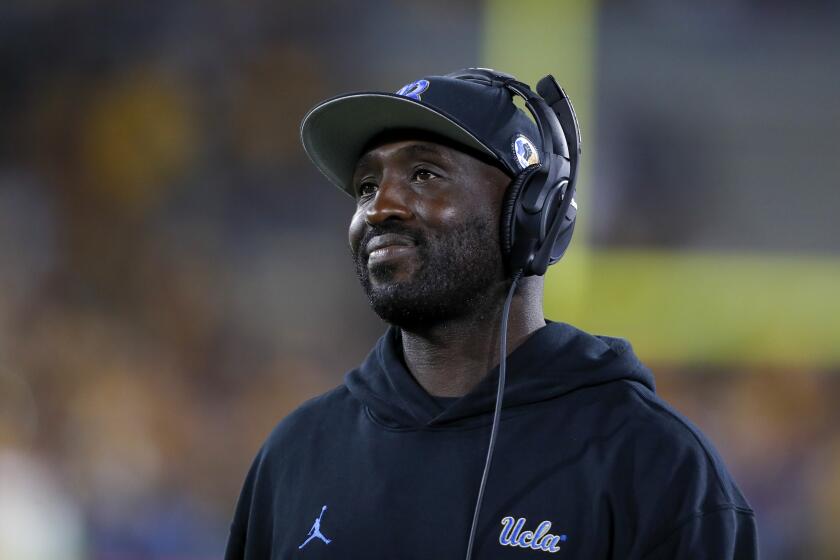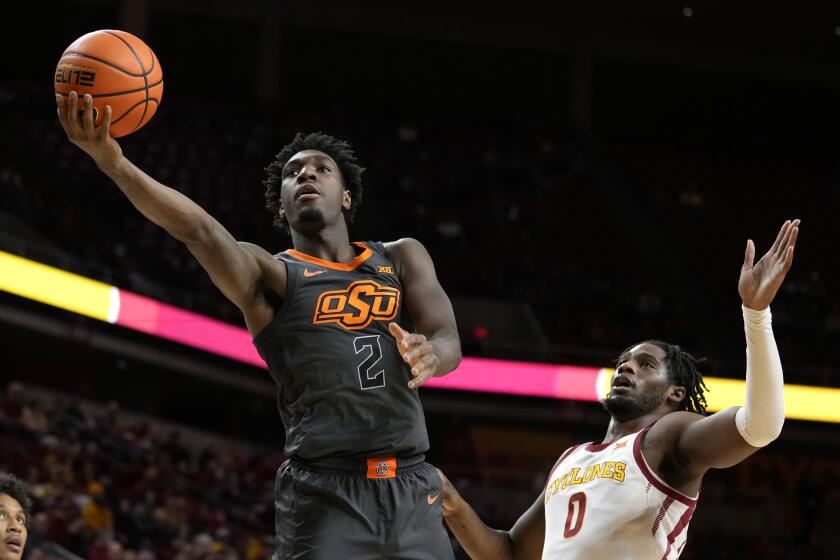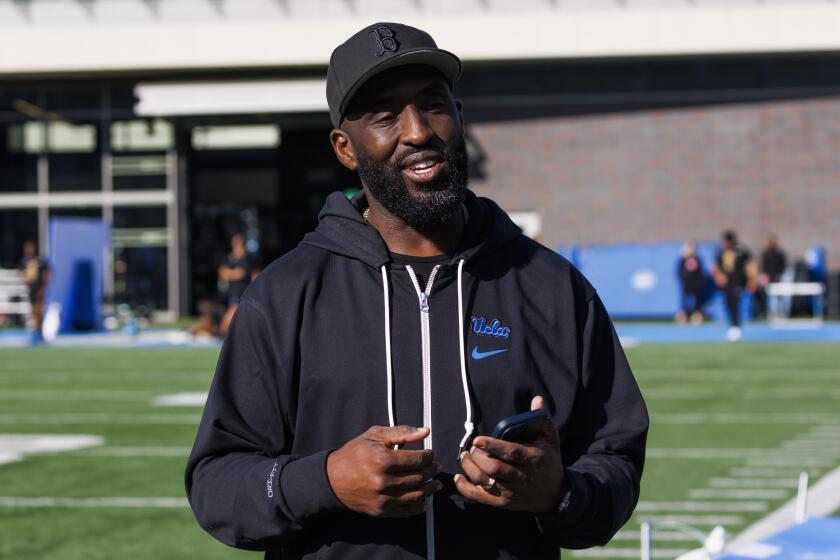UCLA’s defense is ‘moving in the right direction,’ Steve Alford says as Oregon looms
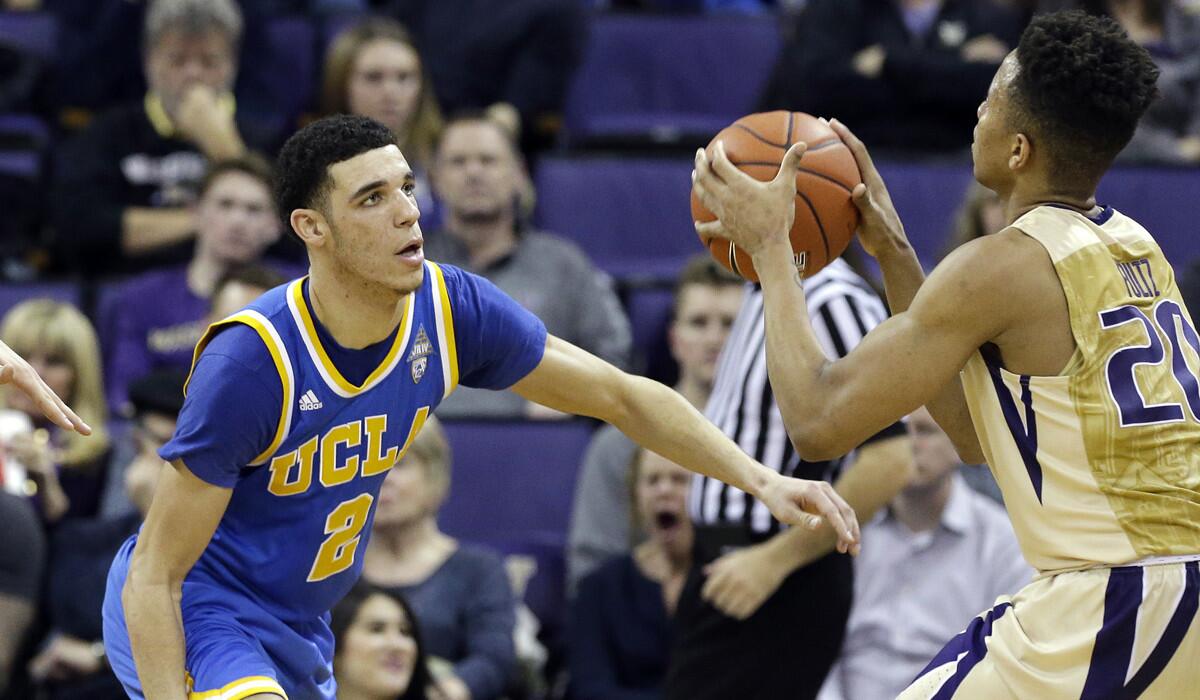
One metric that UCLA might want to track as it prepares for March isn’t its national ranking or projected NCAA tournament seeding.
It’s the team’s adjusted defensive efficiency, a number that hasn’t been nearly as fun for the Bruins to monitor. It measures how many points a team allows per 100 possessions while adjusting for the level of its competition.
UCLA’s adjusted defensive efficiency as of Tuesday was 102.6, according to analytics guru Ken Pomeroy. That ranked the Bruins No. 117 out of 351 teams.
That’s a bad spot to be in for a team with national championship aspirations. No team in the last decade has made the Final Four with an adjusted defensive efficiency ranking worse than Virginia Commonwealth’s No. 88 in 2011. The average ranking of the last 40 teams that made the Final Four was No. 16, with only two teams at No. 51 or higher.
At least UCLA is trending in the right direction. The Bruins have climbed 10 spots since their loss to Arizona last month and are coming off what Coach Steve Alford described as their best defensive effort “by far” against Washington on Saturday.
No. 10 UCLA (21-3 overall, 8-3 in Pac-12 Conference play) will need to sustain that kind of stinginess to beat No. 5 Oregon (21-3, 10-1) on Thursday night at Pauley Pavilion and remain in contention for the conference title.
“We’re moving in the right direction, at least since hitting February, and now we’re going to get arguably our best test of the season playing against a high-octane offense in Oregon,” Alford said Tuesday, “so we’ll have a better understanding if it’s something that just happened last weekend or it’s something we can build on.”
The Bruins have thrived for most of the season because of their best-in-the-country offensive efficiency, which has largely masked their defensive shortcomings. Alford said bad habits that formed early in the season during blowout victories may have contributed to the team’s uneven progression defensively.
“As a former player, I know that ran through their mind that ‘OK, we hear you coach, we hear you,’ ” Alford said, “ ‘but we’re winning by double figures, do we really care if they’re getting 80 or 70 [points]?’ ”
Alford knows that offense-first teams can win championships. He did it as a player for Indiana in 1987 on a team that averaged 89 points in the NCAA tournament while shooting 50% or better in five of six postseason games.
“It’s just who we were,” Alford said of the defensively challenged Hoosiers, who allowed 78 points per game on the way to the title.
Alford said UCLA has bolstered its defense by utilizing the length of 6-foot-6 Lonzo Ball at the top of its zone. The Bruins have also been getting more aggressive play from their big men in pick-and-roll coverage, which has lessened the burden on the guards. And shooting guard Bryce Alford said everyone is talking more and being more active with their hands.
Certain improvements have been all about approach.
“Just not being lackadaisical,” power forward TJ Leaf said. “No plays off.”
Sometimes the best offense really is a good defense.
“Our guys are starting to understand if we get more stops, that means we’ll be even better offensively,” Steve Alford said, referring to his team’s success in transition. “So it’s kind of been an evolution of these guys getting it — and I’m not saying they’ve got it yet, but I like where we’re at the first week in February.”
The voice returns
UCLA will honor recently retired broadcaster Dick Enberg at halftime of its game against the Ducks. Enberg, 82, called eight of the Bruins’ 11 championships during his nine seasons as the voice of the team before going on to work 28 Wimbledons and 10 Super Bowls as well as broadcasting for the Angels, Los Angeles Rams and San Diego Padres.
Enberg was a 14-time Emmy Award winner and a nine-time national sportscaster of the year. His six-decade career ended in October with the Padres on the same day that legendary Dodgers counterpart Vin Scully had his final broadcast.
Twitter: @latbbolch
More to Read
Go beyond the scoreboard
Get the latest on L.A.'s teams in the daily Sports Report newsletter.
You may occasionally receive promotional content from the Los Angeles Times.

